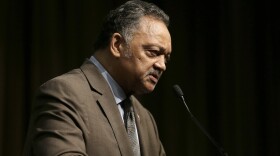After announcing his veto of House Bill 10, Governor Roy Cooper held a press conference today to make the case that the more than $6 billion the bill commits to fund private school vouchers over the next decade will harm rural schools.
“Private school vouchers are the biggest threat to public schools in decades,” Cooper said. “Vouchers crater state budgets, with rural schools being hurt the worst.”
Republican leaders pushed to add $248 million for Opportunity Scholarships this school year to clear a waitlist of 55,000 applicants, after making the program available to anyone regardless of income. The bill also increases funding for the program to $625 million next year, with increasingly larger annual funding over the next eight years.
“Instead, we could use this money that House Bill 10 appropriates, give public school teachers an eight and a half percent raise and a $1,500 retention bonus I proposed already,” Cooper said. “Plus hire more teacher assistants and counselors and have significant money left over.”
Wendy Craven introduced herself at Cooper’s press conference as “an educator first, a Republican second.” She is a member of the Burke County school board and a principal in Hickory City Schools. Craven said she doesn't understand how the legislature could refuse to provide $1.75 billion in public school funding ordered by the then-Democratic led North Carolina Supreme Court in the Leandro court case last year.
“And then miraculously, millions of dollars are found to fund vouchers for private education,” Craven said.
Teacher Elyse Cannon McRae of Pitt County Schools cited the nonpartisan Office of State Budget & Management’s estimate that her school district could lose about $2.5 million in state funding in the first year of voucher expansion.
Other speakers noted that most private schools accepting vouchers are in urban areas, and argued that even a small loss of students in rural counties will have critical effects on school budgets.
Cooper urged Republican state lawmakers who represent rural districts to vote against a veto override. Republicans have a veto-proof supermajority by a margin of one lawmaker in each chamber. Cooper said he knows of some Republican lawmakers who have concerns about the voucher portion of the bill.
“There is still time to stop the expansion of private school vouchers,” Cooper said.
The bill also requires sheriffs to cooperate with federal immigration officials and provides funding to community colleges. When asked about other parts of the bill, Cooper said he’s vetoed prior versions of the sheriff's bill and that any positive items in House Bill 10 are “greatly outweighed” by the damage it would do to public schools.







